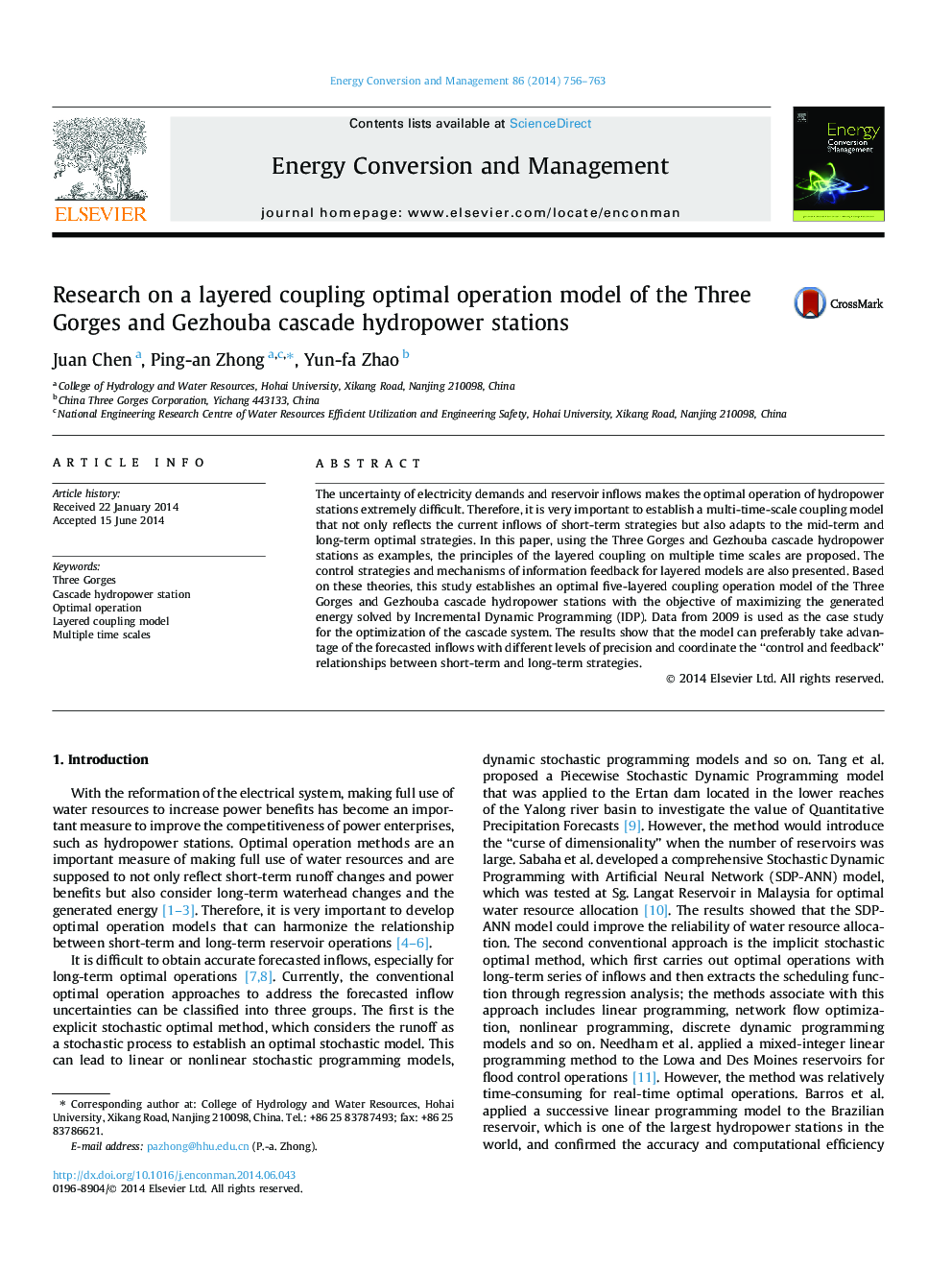| Article ID | Journal | Published Year | Pages | File Type |
|---|---|---|---|---|
| 7164231 | Energy Conversion and Management | 2014 | 8 Pages |
Abstract
The uncertainty of electricity demands and reservoir inflows makes the optimal operation of hydropower stations extremely difficult. Therefore, it is very important to establish a multi-time-scale coupling model that not only reflects the current inflows of short-term strategies but also adapts to the mid-term and long-term optimal strategies. In this paper, using the Three Gorges and Gezhouba cascade hydropower stations as examples, the principles of the layered coupling on multiple time scales are proposed. The control strategies and mechanisms of information feedback for layered models are also presented. Based on these theories, this study establishes an optimal five-layered coupling operation model of the Three Gorges and Gezhouba cascade hydropower stations with the objective of maximizing the generated energy solved by Incremental Dynamic Programming (IDP). Data from 2009 is used as the case study for the optimization of the cascade system. The results show that the model can preferably take advantage of the forecasted inflows with different levels of precision and coordinate the “control and feedback” relationships between short-term and long-term strategies.
Related Topics
Physical Sciences and Engineering
Energy
Energy (General)
Authors
Juan Chen, Ping-an Zhong, Yun-fa Zhao,
